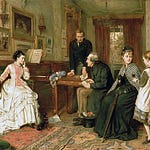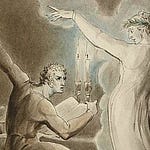Instead of our usual Word of the Week and in honor of Memorial Day, we are reposting and sharing with everyone Tony’s reading of “In Flanders Fields” from last year.
The day is May 3, 1915, and the place is a field outside of the city of Ypres, in Belgium. It is the aftermath of the second battle in that area, a place that must go down in history as one more terrible site of man’s peculiar inhumanity to man. It is not just that thousands in an army of resistance to German aggression have died, or that they have died in that once-peaceful land that the Kaiser wanted to use as a highway into France. “Belgium is a nation, not a road,” said King Albert I, and that set his small country squarely in Wilhelm’s sights. Much of the worst of the trench warfare would be fought in its flatlands and gently sloping hills.
A few days before, a green cloud came blowing in at the Allied army, a cloud of chlorine gas. Such a weapon had been banned by international agreement at The Hague, but the Germans said that the treaty had covered only a means of delivery, and not the poison itself. So the cloud came, and men lay on the ground choking, their lungs rotted out. Both sides would go on to use chemical warfare in the dreadful conflict, and many a man would die not in battle but in preparation for it. One such was Christy Mathewson, the Hall of Fame pitcher for the Giants. He inhaled too much mustard gas when he was training American soldiers for the war, and he eventually died of the corruption in his lungs, in a sanatorium in the mountains of New York.
A medical doctor looks on as the soldiers are buried. He’s a Scotsman from Canada, named John McCrae. He is handsome, well built, keen-eyed, looking much younger than his 42 years. One of the dead men was his dearest friend. And there, mounted upon his horse, watching the proceedings, he composed a poem that would make his name honored in all the English-speaking world.
Other poets had less noble things to say about the war. The same attacks of poisonous gas inspired Wilfrid Owen to write his savage indictment, “Dulce et Decorum Est.” The title comes from an ode by the ancient Roman poet, Horace, who said that it was a sweet and fitting thing to die for your country. Owen calls it “the old lie.” Carl Sandburg, in “Grass” (1918), looks forward to a day when, after the bodies have been “piled high” at “Ypres and Verdun,” the grass has covered them over, so that nobody even remembers that it was once a battlefield. But the Belgians were more grateful than that, and you can go to that place now and find a memorial to Dr. McCrae and the English and the Canadians who fought at Ypres. At that memorial, you can read about the poet, in French and English, and you can read the poem too, in English, with a French translation beneath.
It’s a deceptively simple poem. There are only two rhyming sounds: one introduced in the first line by the word blow, and the other in the third line, by the word sky. And then there are the two lines that don’t rhyme, except that they do rhyme in a way: they are identical, and they repeat the first words of the poem, in a kind of terse and solemn refrain: “In Flanders fields.” McCrae is thinking of things that are low, and things that are high. The dead, who speak in the poem, lie in the earth, and the poppies bloom above them. They once saw the sunset, they felt the dawn, they heard the skylark, they loved and they were loved. But now they are gone. Or are they? They have thrown the torch to the living, and they bid them to hold that torch high, lest the dead shall have died in vain; and then they will not sleep, no matter that the poppies grow upon their graves.
In Flanders fields the poppies blow
Between the crosses, row on row,
That mark our place; and in the sky
The larks, still bravely singing, fly
Scarce heard amid the guns below.
We are the Dead. Short days ago
We lived, felt dawn, saw sunset glow,
Loved and were loved, and now we lie,
In Flanders fields.
Take up our quarrel with the foe:
To you from failing hands we throw
The torch; be yours to hold it high.
If ye break faith with us who die
We shall not sleep, though poppies grow
In Flanders fields.Word & Song by Anthony Esolen is an online magazine devoted to reclaiming the good, the beautiful, and the true. We publish six essays each week, on words, classic hymn, poems, films, and popular songs, as well a weekly podcast, alternately Poetry Aloud or Anthony Esolen Speaks. To support this project, please join us as a free or paid subscriber. Learn more about our subscription tiers by clicking the button below













Share this post